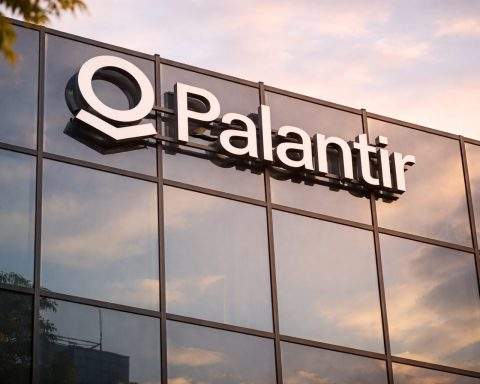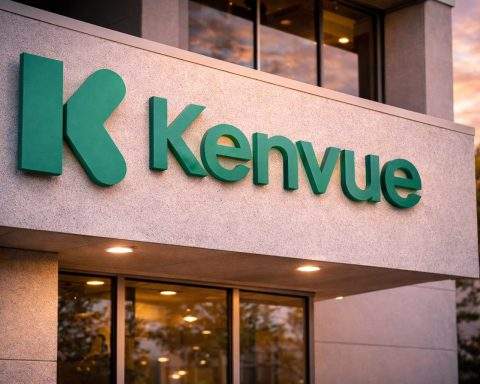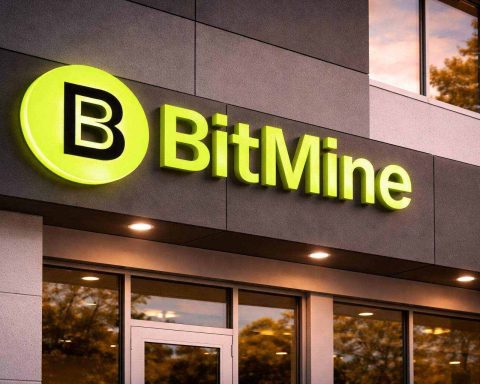Key Facts (2024–2025):
- Companies & Jobs: Luxembourg’s space ecosystem now counts ~80 companies and ~1,650 employees (2024) gouvernement.lu, up from 16 companies/600 jobs in 2012. Key players include SES, Spire, Kleos, OQ Technology, Space Cargo Unlimited, and others.
- Investment & Budget: The government has earmarked hundreds of millions for space R&D and startups. For example, €200 million was committed to the SpaceResources.lu program (2016–present) resourceworld.com, and in 2025 Luxembourg pledged €301 million for its GovSat-2 secure-communications satellite project (with a €200M contingency fund) spaceintelreport.com. Public space spending is very high – Luxembourg’s space budget is 0.135% of GDP (highest share in EU) 1 .
- Economic Impact: Space sector GVA grew 74% from 2018–2023, reaching ~1.7% of national GDP in 2023 gouvernement.lu. The satellite giant SES (Luxembourg‐based) alone posted €2.03 billion revenue in 2023 ses.com. Luxembourg aims to make space ~5% of GDP (up from ~2%) in the coming decade 2 .
- Legal Framework: A series of pioneering laws and policies – including a 2017 “space resources” act and a 2020 general space activities act – provide clear rules for private space ventures meco.gouvernement.lu meco.gouvernement.lu. Luxembourg was the first European country to explicitly grant ownership rights over mined space resources 3 .
Historical Development (1980s–2010s)
Luxembourg’s space ambitions began in the mid-1980s. In 1985 the government launched SES (Société Européenne des Satellites), Europe’s first private satellite operator ses.com. SES’s inaugural Astra 1A satellite was launched in 1988, opening up direct-to-home TV across Europe ses.com. Throughout the 1990s and 2000s SES expanded globally, acquiring U.S. satellites and building a fleet that today covers most of the Earth ses.com 4 .
Luxembourg joined the European Space Agency (ESA) in 2005, cementing its role in Europe’s space efforts gouvernement.lu. However, for decades space in Luxembourg was largely limited to satcom and broadcasting. In the 2010s the government decided to actively grow a newspace sector. In 2016 it launched the SpaceResources.lu initiative, aiming to become a leader in asteroid/mineral prospecting and related R&D resourceworld.com. The 2017 Space Resources Act granted companies rights to resources they extract from asteroids meco.gouvernement.lu resourceworld.com (mirroring U.S. law).
In 2018 Luxembourg formally created the Luxembourg Space Agency (LSA) to coordinate strategy gouvernement.lu and updated its space law. A new “Space Activities Act” was passed in late 2020 to regulate launch, operation, liability and supervision of space missions meco.gouvernement.lu. In parallel, the European Space Resources Innovation Centre (ESRIC) was founded in 2020 (in partnership with ESA and Luxembourg Institute of Science & Tech) to research space mining and sustainability 5 .
By 2020, thanks to these policies, dozens of startups and established firms were relocating to Luxembourg. Investments followed: notably in 2016–17 Luxembourg invested ~€25M into Planetary Resources (a U.S. asteroid-mining startup) techcrunch.com. (Planetary later folded, but the move signaled Luxembourg’s intent.) The space ecosystem grew sharply: from ~32 companies in 2018 to ~75–80 by 2024 gouvernement.lu 6 .
Key Companies and Players
- SES (Betzdorf, Luxembourg) – Founded 1985, SES remains one of the world’s largest satellite operators. It provides TV broadcasting (Astra satellites) and data/telecom services worldwide. In 2023 SES reported ~€2.03 billion in revenue ses.com. SES is a pillar of Luxembourg’s space economy and continues investing in next-gen satellites (e.g. O3b mPOWER high-throughput LEO system).
- Spire Global – A U.S.-founded satellite data and analytics company that established a major European hub in Luxembourg. Spire operates 175+ smallsats collecting maritime, aviation (ADS-B), and weather (GNSS radio occultation, soil moisture, etc.) data space-agency.public.lu. The Luxembourg offices (set up in 2018) now handle Spire’s Aviation, Weather, Earth Intelligence and Space Services business lines space-agency.public.lu. Spire (NYSE:SPIR) has ~300–500 employees in space divisions (including Luxembourg) and ~€95 million in space revenues (2023) space-agency.public.lu. Its unique dataset is valued in the billions: for example, tapping Galileo for weather data was projected to be worth $2.7 billion over 25 years 7 .
- OQ Technology – A Luxembourg startup (spun out of SES/iQ Wireless) building a smallsat constellation for direct satellite-to-cellular (“direct-to-phone”) IoT connectivity. In early 2024 OQ signed a feasibility contract with ESA to advance its 5G NB-IoT satellite RAN technology siliconluxembourg.lu. OQ’s vision is to link terrestrial networks with LEO satellites, and analysts estimate the broader satellite-to-phone market at ~$1 trillion siliconluxembourg.lu. The company is backed by the government’s LuxIMPULSE program and has multiple ESA contracts.
- Kleos Space – A Luxembourg-based smallsat firm specializing in RF geolocation (tracking signals from space for defense/intel). Kleos launched clusters of nano-satellites to detect ships and other emitters. (It is listed in Australia: ASX:KSS.) However, Kleos faced financial challenges in 2023 and announced plans to file for bankruptcy satellitetoday.com satellitetoday.com. Its story highlights the high-risk nature of new space ventures.
- Space Cargo Unlimited – A Luxembourg “space biotech” startup (founded 2014) offering microgravity R&D and manufacturing services. It made headlines by sending vine cuttings to the ISS to breed climate-resilient plants forbes.lu. SCU’s BentoBox free-flying lab will host dozens of small experiments in orbit. Founder Nicolas Gaume explains, “What makes us different… is that we were first a user” of space facilities, driving practical solutions forbes.lu. SCU reflects Luxembourg’s push into space-based life sciences and materials.
- ispace Europe – The European subsidiary of Japan’s ispace lunar exploration company. ispace Europe (based in Luxembourg) develops robotic Moon landers and rovers space-agency.public.lu. The Luxembourg office includes design and manufacturing labs and a mission control room. ispace participated in NASA’s CLPS program and conducted a (partial) moon-landing attempt in 2025 8 .
- Others: Luxembourg also hosts or has attracted firms like Arqit (cybersecurity satellites), Made in Space (in-space manufacturing R&D), GomSpace (smallsat subsystems, via a Lux branch), and numerous smaller startups listed in the official Space Directory space-agency.public.lu space-agency.public.lu. The House of Satellites business park in Betzdorf (satellite hub) and plans for a new Space Campus (see below) further concentrate this ecosystem.
Government & Institutional Role
The Luxembourg government has been the architect and sponsor of the space cluster. Key actions include:
- SpacePolicy and Agency: The Ministry of the Economy drafted a national Space Strategy (updated periodically). The 2023–27 strategy emphasizes sustainability (on Earth and in space) and continued economic diversification space-agency.public.lu. The strategy lists four priorities: economic sustainability, Earth sustainability (e.g. SDGs), sustainability in space (traffic management, in-orbit servicing) and sustainable use of space resources space-agency.public.lu. The government created the Luxembourg Space Agency (LSA) in 2018 to implement policy, coordinate public‐private initiatives, and attract investment meco.gouvernement.lu gouvernement.lu. LSA’s mission is “to promote the development of the Luxembourg space industry by supporting growth, creating synergies, and developing skills” 9 .
- SpaceResources.lu initiative: Launched in 2016, this program aims to build Luxembourg into a space mining hub. It offers funding, legal certainty, and R&D collaboration. Luxembourg set aside ~€200 million to fund space exploration startups and incentives under this initiative resourceworld.com. The nation became the second worldwide (after the U.S.) to pass a law granting private companies rights to own resources extracted from celestial bodies resourceworld.com. In practice, any company launching an asteroid mission from Luxembourg must obtain a national licence (requiring Luxembourg-based registration, safety reviews, etc.) 10 .
- Space Law and Regulation: As part of its legal framework, Luxembourg in 2020 passed the Space Activities Act, establishing licensing, oversight, liability and registry rules for all missions by Luxembourg-based entities meco.gouvernement.lu. The country actively aligns with international norms (Outer Space Treaty, registration conventions) and leads on space mining law (2017 “Space Law”). LSA and the Ministry of Economy oversee approvals and supervise operators, ensuring environmental and financial safeguards resourceworld.com 11 .
- Funding & Incentives: The government funds space R&D through programs like LuxIMPULSE (RDI grants) and co-invests via a “Luxembourg Space Fund” (a public-private VC fund of around €100M launched in 2019 newspace.capital). It also partnered with the European Investment Bank in the “Space for Finance” initiative (2025) to use satellite data in sustainable finance space-agency.public.lu. The National Research Fund (FNR) and University of Luxembourg (with new Masters in Space-related fields) support talent development.
- Facilities & Clusters: In 2022-24 Luxembourg developed new infrastructure: the Space Campus, with first phase (7 ha in Kockelscheuer) breaking ground in 2024 space-agency.public.lu. This will co-locate LSA HQ, technical labs (a 3,000 m² test center), company offices and an incubator. A second site in Belval will host space research institutes (e.g. SnT, ESRIC labs) space-agency.public.lu. The government also builds the LSA Data Center (for satellite data services) and expanded launch/ground station support.
- International Partnerships: Luxembourg works closely with ESA (20 years member as of 2025 gouvernement.lu) and participates in programs like Galileo, Copernicus, and Ariane development. In 2024 it signed a new 10-year framework with NASA specifically on space resource exploration gouvernement.lu, building on an MOU from 2019. The LSA also liaises with EU bodies and 40+ bilateral space agreements (with e.g. Taiwan, UAE, Ukraine). In a recent joint announcement, ESA’s Director Aschbacher praised Luxembourg’s contribution and ESA-Lux collaboration 12 .
Recent Developments (2024–2025)
- Events & Conferences: Luxembourg hosts high-profile space events. Luxembourg Space Week 2024 (Dec 2024) gathered industry and government for panels on topics from satellites to space resources space-agency.public.lu. In June 2025 Luxembourg celebrated its 20th ESA membership anniversary; Prime Minister Luc Frieden and Minister Lex Delles reiterated support for space as an economic driver 13 .
- Public-Private Initiatives: In May 2025 LSA and the European Investment Bank launched Space for Finance, using satellite data for ESG/compliance in finance. EIB Vice President Robert de Groot noted, “Space is no longer just about exploration; it is increasingly about innovation that drives real-world solutions” space-agency.public.lu. Luxembourg emphasized its dual-use strategy (civil and defense). For example, SES/GovSat (a Luxembourg/SES JV) is building GovSat-2, and in Aug 2025 Luxembourg committed €301M to it with an extra €200M reserve 14 .
- Corporate Contracts: Numerous contracts highlight growth: In early 2024 startup OQ Technology won an ESA contract (MACSAT 2.0) to develop direct-to-cell satellite tech siliconluxembourg.lu. Satellite communications providers signed deals too (e.g. SES’s new contracts in networks and video reported in 2023 results ses.com). Startup Space Cargo Unlimited pre-sold payload space on its BentoBox mission (launch in 2025) to companies needing microgravity R&D 15 .
- Talent and Research: The government has bolstered education: a Master’s in Space Sciences (Univ. of Luxembourg, 2019) and scholarships for astronauts (Luxembourg-Belgian ESA astronaut Raphaël Liégeois) signal a focus on human resources. In 2025 Luxembourg signed agreements for “Humans In Space” health research (leveraging microgravity studies).
Economic Impact and Market Size
Luxembourg’s space sector is still small in absolute terms, but punches above its weight. According to the Ministry of Economy, in 2023 the industry (excluding SES) generated nearly €1.73 billion in gross value added (GVA), about 1.7% of GDP gouvernement.lu. Including SES, the footprint is even larger. Employment in space services has roughly tripled since 2012 gouvernement.lu. The sector’s growth rate is double-digit: GVA grew 74% from 2018–2023 gouvernement.lu, and jobs rose ~65% in the same period. Luxembourg aims for the space economy to reach 5% of GDP over the next decade 2 .
Globally, the space economy is booming. The Space Foundation reported a world space economy of ~$570 billion in 2023 (7% up from 2022). European analysis sees global space revenues growing from ~$421 billion in 2024 to over $500 billion by 2029. Luxembourg is tapping this trend by emphasizing lucrative segments: satellite data services, secure comms, and emerging fields. For instance, Spire notes its unique weather/maritime dataset will be worth $2.7 billion over 25 years newspace.capital. OQ’s target (direct-to-cell) and other IoT/5G constellations are estimated in the hundreds of billions.
In total, Luxembourg’s government has invested actively: roughly €200 million into space R&D and venture funding (SpaceResources initiatives, LSA seed fund, etc.) resourceworld.com, plus millions more in infrastructure and ESA dues. The private sector has raised considerable capital as well: in 2023 alone billions were invested in European space startups, and Luxembourg’s own Space Fund and Space Tech Angels have entered the fray. This has attracted global companies: dozens of non-Luxembourg firms (Astroscale, Made In Space, etc.) have set up European headquarters here, lured by funding and a clear legal regime.
Regulatory and Policy Frameworks
Luxembourg’s policy framework is one of the most advanced worldwide:
- Space Law & Licensing: Luxembourg ratified the Outer Space Treaty and has been quick to enact national law. Its 2017 Space Resources Act explicitly grants private companies the right to own what they extract from asteroids resourceworld.com. In December 2020 it enacted a comprehensive Space Activities Act, covering launch authorisations, safety, insurance, and registration meco.gouvernement.lu. Together these laws give foreign companies confidence to base their space operations in Luxembourg, knowing they can license resources and receive government oversight.
- Budget & Financing: Space activities are included in the national budget; Luxembourg’s space R&D investment per capita is the highest in Europe space-economy.esa.int. The government also created specialized funding vehicles: e.g. the LuxIMPULSE RDI grants (funding space tech projects) and a €100M public-private Luxembourg Space Fund (launched 2019) to seed startups newspace.capital. Financial institutions (EIB, SNCI) actively support space projects, and Luxembourg hosts the European Space Resources Innovation Centre (ESRIC) which helps firms secure EU and private funds.
- EU & International Integration: Luxembourg aligns with EU space regulations (e.g. Copernicus data policies, GSA/Galileo user programs). It participates in ESA and EUMETSAT, and subscribes to UN space treaties. As mentioned, it recently signed a framework with NASA on space resource cooperation gouvernement.lu, and pursues Artemis Accords and bilateral MoUs (e.g. with Japan’s ispace, Israel’s SpaceIL). It is also involved in EU defense-space initiatives (NATO communications, IRIS² connectivity).
- Regulatory Updates: The 2023–27 strategy calls for continuous updates to regulations (e.g. to address space traffic, cybersecurity, debris). Luxembourg is an active member of UN and EU working groups on space traffic management. The government has even proposed revising its laws to integrate UN guidelines on “sustainable use of outer space.” In short, Luxembourg maintains a forward-looking policy mix: a competitive legal regime for businesses, combined with commitments to responsible practices (dual-use tech, orbital sustainability).
Future Outlook (5–10 Years)
Industry analysts forecast continued rapid growth. Globally, the demand for satellite services is accelerating: mega-constellations for broadband, expansion of IoT/sensor data, and growing defense/government use of space are driving an estimated 4–7% annual growth in the space economy through 2030. Luxembourg intends to aim even higher. The government’s 2023 strategy explicitly targets new growth niches: space traffic management, in-orbit servicing/debris removal (aligning with ESA and EU focus), advanced Earth observation data for climate and intelligence, and pioneering space resources R&D space-agency.public.lu 5 .
Promising sectors include:
- Satellite Connectivity & 5G IoT: Luxembourg companies like OQ Technology and SES are leading direct-to-device and secure-satcom efforts. With major device-makers (Apple, Samsung) enabling satellite phone links, Luxembourg’s early investments could pay off.
- Earth Observation Data Services: Firms like Spire (weather, maritime data) and GHGSat (greenhouse gas monitoring, Canadian but with Luxembourg interests) anticipate booming markets for satellite-derived climate data. Luxembourg aims to be a data hub (e.g. via its planned LSA Data Centre).
- Space Resources & Exploration: Long-term, Luxembourg’s stake in asteroid mining and lunar ventures (via ispace, Deep Space initiatives) could materialize as NASA and private missions expand. The presence of ESRIC and partnerships with NASA/ESA suggest Luxembourg will keep a seat at the table for any future commercial space mining.
- In-Orbit Services & Manufacturing: With the Space Campus test facilities and support programs, Luxembourg could attract startups in satellite repair, refueling, and on-orbit fabrication. The focus on sustainability in space space-agency.public.lumeans Luxembourg will likely support technologies like robotic debris capture and life-extension services.
Expert Perspective: Officials and industry leaders see Luxembourg as a “pioneer” enabling disruptive space innovation. LSA CEO Marc Serres and Economy Minister Lex Delles often highlight the “momentum” the SpaceResources push has created. As Minister Delles stated in 2025: “Luxembourg’s collaboration with ESA has been instrumental in developing our sector… continuing our partnership will lead to even greater results in the future” gouvernement.lu. EIB Vice-President Robert de Groot remarked that “Space is no longer just about exploration; it is increasingly about innovation that drives real-world solutions” space-agency.public.lu, underscoring the emphasis on satellite data for Earth applications. Space entrepreneurs echo this: Nicolas Gaume of Space Cargo Unlimited noted Luxembourg’s advantage, “We were first a user” (of space research), meaning the country builds on practical experience 15 .
In summary, Luxembourg has engineered one of Europe’s fastest-growing space industries. Through bold policy, hefty funding, and strategic partnerships, it has turned from a passive player into a commercial space hub. While still dwarfed by giants like the U.S. and China in absolute terms, Luxembourg’s per-capita investment and innovation output are among the highest globally space-economy.esa.int. If it achieves its goal of making space ~5% of GDP, that would mark an astonishing expansion. Analysts caution that competition is rising (many countries now offer space incentives), but Luxembourg’s combination of legal clarity, capital, and international cooperation gives it a strong footing. As one expert put it, Luxembourg has treated space “like an F1 engine” for its economy newspace.capital – a race-car strategy that, so far, is leading to pole position in the new space race.
Sources: Official Luxembourg government and Space Agency publications meco.gouvernement.lu gouvernement.lu; ESA space economy reports space-economy.esa.int space-economy.esa.int; corporate releases (SES FY2023) ses.com; industry media (SpaceIntel, SiliconLux, ViaSatellite, Forbes) space-agency.public.lu siliconluxembourg.lu forbes.lu; and other credible references as cited.






